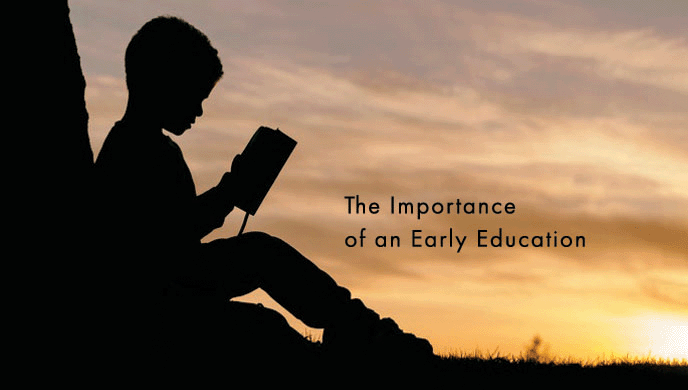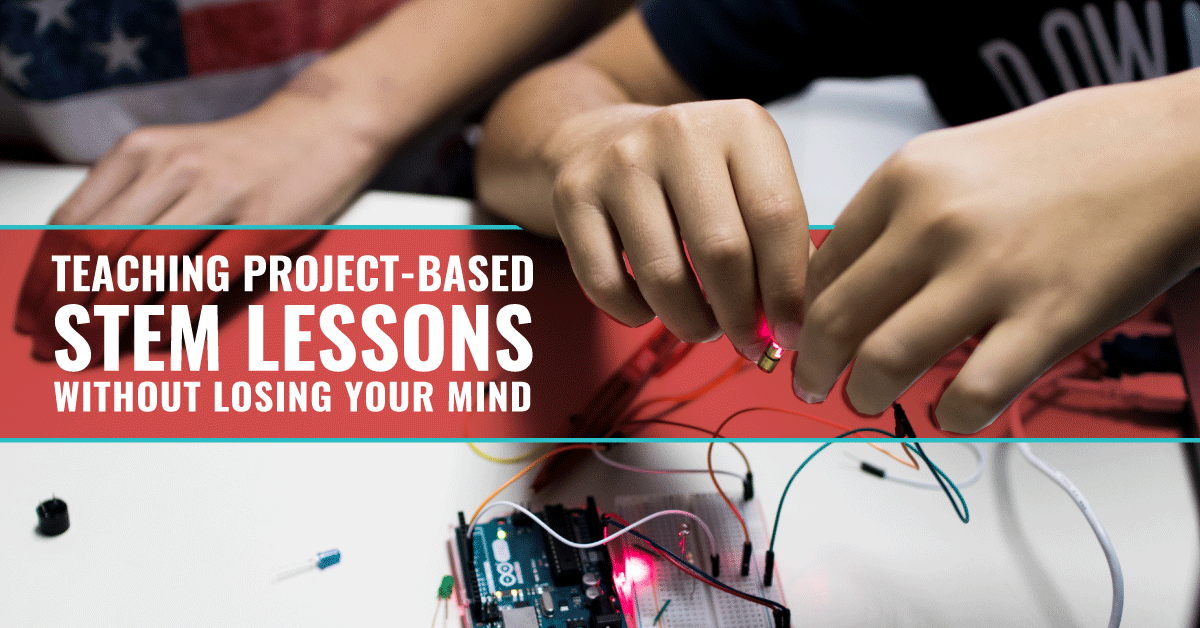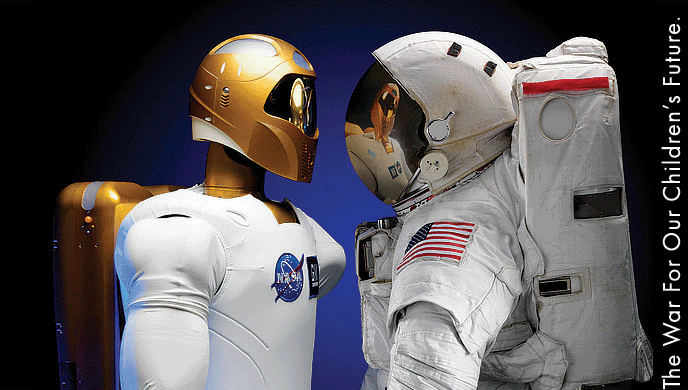When it comes to early childhood education: 
(and were we being completely honest, education at all levels)
The United States public education system is in need of a serious overhaul.
Literacy for reading and mathematics trails the rest of the world by a wide margin.
Despite vast spending on education, standardized tests and leaving no child behind, there has been little in the way of progress to bridge the achievement gap in the United States.
While there is a vast plethora of scholarly research on what is and is not effective in educating young children during their most formative years, it seems that many school systems in the United States are not implementing programs that take advantage of these tools.
Educational researchers and classroom teachers have learned a lot over the past century of American education, especially when it comes to young children.
The problem lies not with early childhood education itself, however, but rather with the mindsets and approach to educating our youngest learners.
As part of the solution to this problem, Creation Crate helps challenge the minds of youngsters while playing with fun toys that develop science, technology, engineering and math skills.
Let’s see what experts have to say about what research and teacher classroom experience have discovered about the best practices for early childhood education.
Dr. Arthur J. Baroody, Ph.D.
https://education.illinois.edu/faculty/baroody
Primarily a mathematics educator, Dr. Arthur J. Baroody is one of the leading experts on early childhood numeracy education in the United States.
He has conducted extensive research both in academic and classroom settings regarding how best to begin educating our youngest learners in numbers and mathematics.
Baroody’s research has found that parental involvement in children’s numeracy learning with basics such as counting, pattern recognition, addition and subtraction is crucial to effective early childhood education.
In Baroody’s words from 2006, kids don’t develop difficulties because they can’t learn, but rather, “Difficulties are due to defects inherent in conventional instruction.”
To put it another way, people responsible for a child’s early education should adopt nontraditional strategies to help kids learn.
Additionally, Baroody advocates for inquiry-based, discovery-oriented learning that focuses on play with numbers and counting concepts rather than formalized math education with young learners.
In short, early learners should be playing with math concepts and counting from a very early age with parental involvement.
However, this learning should not be a highly structured approach that focuses on hitting developmental benchmarks (much like the current early educational system in America).
Ingrid Chalufour, M. Ed
http://www.redleafpress.org/cw_contributorinfo.aspx?ContribID=18856&Name=Ingrid+Chalufour
A leading expert in early childhood science education, Ingrid Chalufour has participated in numerous discovery learning studies that acquaint young learners with the scientific method and general science learning in an environment that allows them to work at their own pace. 
Chalufour states, “Infinitely curious about the world around them, children constantly observe and explore, take in new information, and generate their own ideas about how the world works.”
Chalufour says early childhood education teachers often lack the knowledge and skills to help develop this innate curiosity.
Traditional methods put raw numbers in front of students as they conduct experiments, but those techniques don’t work for young children.
From her extensive research, she has developed five basic principles wherein she strongly recommends creating a student-centered environment in order to give learners practical experiences in working as scientists without the pressure and demands of hitting curriculum standards.
Dr. George Graham, Ph.D.
http://www.pecentral.org/pecinfo/pechistory.html
Working in physical education studies for most of his career, Dr. George Graham focuses primarily on studies involving kinesthesiology and physical education in learners of all ages.
However, he has researched and written extensively about the importance and benefits of physical movement and exercise during early childhood development.
His work includes becoming one of the leading advocates for improving the quality and implementation of physical education in schools. 
Graham strongly suggests how physical activity throughout the school day has a positive impact on young learners and their overall education.
Back in 1997, Graham defended physical education’s role in schools in a speech when he said, “many of us believe that those of us who participate in physical activity regularly are happier, do better in school, and generally live more fulfilling lives.”
At the time, there was little evidence that physical education improved students’ abilities to learn in other subjects.
However, Graham pointed out that physically active youngsters have less health problems later in life, and that these people handle stress better as well.
Dr. Tracie E. Costantino, Ph.D.
http://www.risd.edu/templates/content.aspx?id=6442459645
Specializing in arts and museum education, Dr. Tracie Costantino has contributed vast amounts of research and development of arts programs for K-12 learners.
Her underlying research notes the benefits of developing a strong understanding and appreciation for aesthetics from an early age.
Costantino is a firm believer in immersive exposure to visual art even in early childhood.
She says one element of art appreciation lies in drawing a rough sketch of a work as part of art curricula that “include opportunities for visual thinking and qualitative reasoning through art making to fully express one’s understanding of an artwork.”
Her research demonstrates that the more exposure to art a learner has, the greater drive and appreciation for creativity that person has throughout his or her life.
Dr. Robert C. Pianta, Ph.D.
http://curry.virginia.edu/about/directory/robert-c.-pianta
When it comes to the study of educational psychology, few have the experience and expertise of Dr. Robert Pianta. 
A long-time contributor and evaluator of studies concerning the impact of social environment and school experiences on a child’s psychological development, Pianta has spearheaded numerous professional development initiatives for teachers and school-wide programs to improve the quality of education for our youngest learners.
His fundamental principle has always been that the development of strong social skills in a school environment leads to more successful learners, and those social skills instill a love of learning from an early age.
Pianta noted in a paper to the state of Virginia that teachers must develop bonds with students at a young age to enhance “social competence with peers, self-regulation, emotional self-control, task orientation, persistence, and following directions.”
What Creation Crate thinks?
What all these experts are saying boils down to one underlying concept: young children benefit from educational programs that encourage creative play and discovery-focused, inquiry-based learning.
Formalizing early childhood development into a series of arbitrarily created benchmarks that students either meet or fail is only setting them up struggles in the long term.
For the first few years of their education, kids need to be kids.
They must be encouraged to explore and learn all about the world around them with numbers, science, art, stories and movement.
In a post-industrial country that is in need of a new generation of creators and innovators, now is the time to encourage our children to love learning.
We can start by creating programs where kids want to spend their day with adults who inspire them to satisfy their innate curiosity.
The research is in, and the data doesn’t lie.
If you are concerned about how your children are educated, the best thing you can do is get involved at their school and talk to their teachers, principals, and school board representatives about how their programs line up with current research.
Lend a hand, ask questions, and help your school meet your child’s needs to raise a generation of lifelong learners and creators.
Subscribe to Creation Crate today to see how we can help your child take his or her learning to the next level.
Sources for quotes, in sequential order as listed in the article:
http://webmedia.jcu.edu/cmsett/files/2014/06/baroody-facts-article.pdf Baroody
http://ecrp.illinois.edu/beyond/seed/Chalufour.html Chalufour
http://www.pecentral.com/professional/defending/georgespeech.html Graham
http://files.eric.ed.gov/fulltext/EJ801206.pdf Costantino
http://www.smartbeginnings.org/Portals/5/PDFs/SREB_Building_a_Strong_Foundation.pdf Pianta











